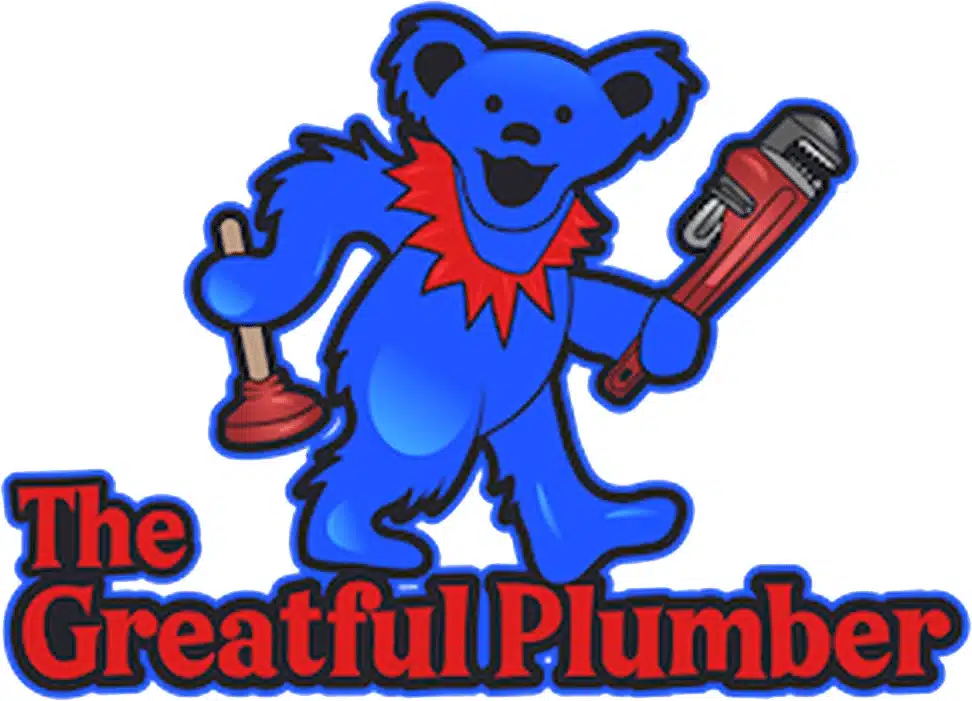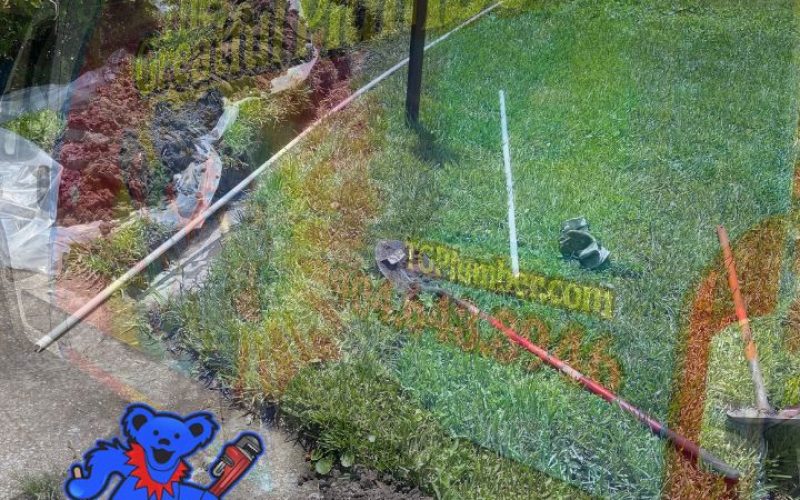Living in Jacksonville’s historic 32207 ZIP code means you’re part of some of the city’s most charming and desirable neighborhoods. From the elegant homes of San Marco to the established communities of St. Nicholas, this area offers a perfect blend of history, walkability, and modern amenities just minutes from downtown.
But if your home was built in the mid-20th century or earlier – and many in 32207 were – there’s a hidden challenge you need to understand: aging sewer and drain systems that are reaching the end of their useful life.
At The Greatful Plumber, we work in 32207 neighborhoods every week, and we’ve seen firsthand how the combination of older building materials, mature landscaping, and Jacksonville’s unique environmental conditions create the perfect storm for sewer line problems.
Why 32207 Homes Face Unique Sewer Challenges
Historic Development Timeline
The 32207 area has a fascinating development history that directly impacts today’s plumbing challenges:
- San Marco’s original development began in 1925-1926 during the Florida land boom, with most construction occurring through the 1940s
- St. Nicholas area saw major residential development in the late 1930s to meet Jacksonville’s growing middle class housing needs
- Post-World War II expansion brought additional neighborhoods throughout the 1940s-1960s
This means many homes in 32207 were built with plumbing materials that have now reached or exceeded their expected lifespan.
Original Building Materials
Homes built during these eras typically used materials that seemed ideal at the time but have significant limitations:
Cast Iron Pipes (1920s-1970s): Cast iron sewer pipes have a typical lifespan of 50-75 years, but in practice, most need replacement closer to the 50-year mark. Deterioration can begin as early as 25 years due to corrosion from hydrogen sulfide gas that converts to sulfuric acid inside the pipes.
Clay/Vitrified Clay Pipes (1920s-1960s): Clay pipes typically last 50-60 years and were popular because they resist chemical corrosion. However, they’re extremely brittle and susceptible to cracking from ground movement and root intrusion.
Early Concrete Pipes: Some homes used concrete sewer pipes, which can degrade over time due to acidic soil conditions common in Jacksonville.
32207 Reality Check: If your home was built before 1975, there’s a high probability your sewer system uses materials that are now considered obsolete and may be approaching failure, even if you haven’t noticed major problems yet.
Environmental Challenges Specific to 32207
Mature Tree Canopy: The beautiful oak trees and established landscaping that make San Marco and St. Nicholas so appealing create serious challenges for underground utilities. Tree roots naturally seek water sources, and even tiny cracks in aging pipes become entry points for root systems that can completely block sewer lines.
Proximity to St. Johns River: The area’s location near the river means high groundwater levels, especially during Jacksonville’s rainy season. This creates several problems:
- Soil shifting and settling that can cause pipes to sag or separate
- Increased pressure on aging pipe joints
- Higher likelihood of infiltration and backups during heavy rains
Clay Soil Conditions: Jacksonville’s clay-heavy soil expands when wet and contracts when dry, putting constant stress on underground pipes. This cycle of expansion and contraction accelerates the deterioration of older materials.
Warning Signs Your Sewer Line Needs Attention
Multiple Fixture Backups
When several drains slow down or back up simultaneously – your kitchen sink, bathroom sink, and bathtub all having problems at once – this typically indicates a main sewer line issue rather than individual fixture clogs.
Recurring Drain Problems
If you’re calling for professional drain cleaning more than once a year, it’s usually a symptom of a bigger underlying problem. Older pipes with rough interior surfaces or partial collapses create chronic clog points.
Sewage Odors
Persistent sewer smells inside your home or in your yard often indicate:
- Cracked or separated pipe joints allowing gases to escape
- Damaged vent systems
- Serious blockages causing backup conditions
Unexplained Landscape Changes
Keep an eye out for:
- Soggy patches in your yard that don’t dry out normally
- Unusually green or lush grass in specific areas (wastewater acts as fertilizer)
- Foundation settling or new cracks that could indicate soil washout from leaking pipes
- Sudden high water bills suggesting hidden leaks
Homeowner Alert: While one slow drain might be a local clog, when multiple fixtures throughout your home drain slowly, it suggests main line problems.
Common Causes of Sewer Failures in 32207
Root Intrusion – The Number One Problem
The mature trees that give San Marco and St. Nicholas their character are also the biggest threat to sewer systems. Large oak trees, magnolias, and other established species send extensive root systems searching for water and nutrients. Even hairline cracks in aging cast iron or clay pipes become entry points, and once roots establish themselves inside pipes, they grow rapidly and can completely block flow.
Material Deterioration
Cast Iron Corrosion: Internal corrosion occurs when hydrogen sulfide gas (produced by waste decomposition) combines with moisture to form sulfuric acid. This acid literally eats away at the pipe walls from the inside, causing holes, cracks, and eventual collapse.
Clay Pipe Brittleness: While clay resists chemical damage well, it’s extremely vulnerable to physical stress. Ground movement, root pressure, or even normal settling can cause clay pipes to crack or shatter.
Pipe Sagging and Bellying
Jacksonville’s clay soil and high water table can cause sections of sewer line to sag, creating low points where waste and water collect instead of flowing properly. These “bellied” sections become chronic problem areas.
Joint Failures
Older pipe connection methods used materials like oakum and lead that deteriorate over time. As these joints fail, they allow infiltration of groundwater and soil, leading to blockages and backups.
City of Jacksonville Requirements and Compliance
Mandatory Upgrades
When sewer problems are discovered, repairs must meet current Jacksonville building codes, which often requires more than just fixing the immediate problem:
- Obsolete materials must be replaced: Cast iron, clay, and Orangeburg pipes cannot be repaired with like materials
- Modern materials required: New installations must use approved materials like Schedule 40 PVC
- Accessible cleanouts: Current code requires cleanouts for future maintenance access
- Proper slope and installation: All work must meet current engineering standards
Permit Requirements
Most sewer line repairs and all replacements require permits from the City of Jacksonville’s Building Inspection Division. This ensures:
- Work meets current safety and environmental standards
- Proper materials and installation methods are used
- Professional inspection verifies code compliance
Repair and Replacement Options for 32207 Homes
Assessment First
Before any major work, professional camera inspection provides crucial information:
- Exact location and extent of problems
- Pipe material identification
- Root intrusion assessment
- Joint condition evaluation
- Overall system condition
Traditional Excavation and Replace
This involves digging up the damaged pipe and installing new PVC sewer lines. While more disruptive, it provides:
- Complete system renewal
- Opportunity to improve slope and routing
- Access to upgrade materials and add cleanouts
- Long-term reliability with modern materials
Trenchless Repair Methods
When conditions allow, trenchless techniques can minimize landscape disruption:
Pipe Bursting: The old pipe is broken apart while simultaneously pulling a new pipe into place Pipe Lining: A resin-saturated liner is installed inside the existing pipe and cured in place
Cost Reality: Sewer line work in 32207 typically ranges from $2,000-$4,000 for spot repairs, $4,000-$8,000 for partial replacement, and $6,000-$15,000+ for full system replacement. Factors affecting cost include length and depth of pipes, accessibility, permit fees, and method chosen.
Preventive Maintenance for 32207 Homeowners
Regular Professional Inspections
Schedule sewer line camera inspections every 3-5 years if your home is over 30 years old. This allows you to:
- Track the condition of your system over time
- Identify problems before they become emergencies
- Plan repairs during convenient times
- Budget for necessary work
Root Management
If you have large trees near your sewer line:
- Consider professional root cutting every 2-3 years
- Use root-killing treatments designed for sewer lines
- Plant new trees away from sewer line paths
- Choose tree species with less aggressive root systems for areas near utilities
Proper Usage Habits
Protect your aging sewer system by:
- Never flushing anything except toilet paper and waste
- Avoiding chemical drain cleaners that accelerate pipe corrosion
- Using sink strainers to catch food debris
- Properly disposing of grease and cooking oils
Real-World Examples from 32207
San Marco Bungalow Cast Iron Replacement
A 1940s bungalow near San Marco Square had recurring kitchen sink backups. Camera inspection revealed collapsed cast iron under the concrete slab. The homeowners chose full replacement with PVC, including rerouting around a large oak tree. While the project required interior floor work, they haven’t had a single sewer problem in five years since completion.
St. Nicholas Clay Pipe Root Intrusion
A St. Nicholas homeowner experienced monthly sewer backups. Investigation showed extensive root intrusion in original 1950s clay pipes from three mature oak trees. After hydro-jetting provided temporary relief, we recommended trenchless pipe bursting to minimize disruption to established landscaping. The new PVC system has performed flawlessly.
Planning and Budgeting for Sewer Work
Signs It’s Time to Plan
Start planning for sewer work when:
- Your home is over 40 years old with original plumbing
- You’re experiencing recurring drain problems
- Camera inspection reveals significant deterioration
- You’re planning other major home renovations
Best Timing
Schedule major sewer work during:
- Dry seasons when soil conditions are most stable
- Planned renovation periods to coordinate with other trades
- Off-peak seasons when contractors have more availability
Investment Perspective: A functioning sewer system is essential for marketability when you decide to sell, home inspection passage during real estate transactions, and quality of life. Delaying necessary sewer work often results in emergency repairs costing 2-3 times more than planned work.
Why Choose The Greatful Plumber for Your 32207 Home
Neighborhood Expertise
We’ve been serving San Marco, St. Nicholas, and surrounding 32207 neighborhoods for years. We understand:
- Local soil conditions and how they affect different pipe materials
- Historic home considerations and preservation requirements
- Tree and landscaping challenges unique to established neighborhoods
- City of Jacksonville requirements for permits and code compliance
Comprehensive Services
Our 32207 homeowners benefit from:
- Professional camera inspections with detailed reporting
- Multiple repair options from spot repairs to full replacement
- Emergency response when you can’t wait for regular business hours
- Preventive maintenance programs to extend system life
Ready to Protect Your 32207 Home?
Don’t wait for a sewer emergency to force your hand. Whether you need immediate repairs or want to assess your system’s condition, The Greatful Plumber is here to help.
Call The Greatful Plumber at (904) 643-3946 or book online for:
- Comprehensive sewer camera inspections
- Professional diagnosis and repair recommendations
- Emergency sewer line repairs available 24/7
- Complete system replacement with modern materials
- Preventive maintenance programs tailored to your home’s needs
Serving all 32207 neighborhoods – from historic San Marco estates to St. Nicholas family homes.
When your sewer system needs professional attention, trust the local experts who understand both Jacksonville’s unique challenges and your neighborhood’s specific needs.










